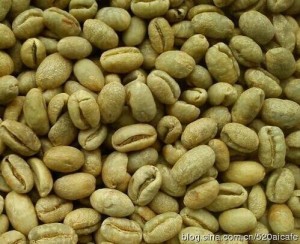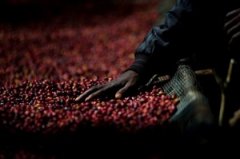Fine coffee single coffee beans Venezuelan coffee beans
Venezuelan Coffee Coffee Venezuela

The distinctive manor coffee comes from this oil-rich country.
Oil was once considered to be the main export of Venezuela. Although coffee trees were introduced from Martinique in 1730 and Venezuela, coffee production was almost abandoned at the height of the oil industry. Recently, coffee plantations have begun to recover, with the original planting of Tipica and bourbon coffee trees and new plantations laying the foundation for coffee exports. Currently, most Venezuelan coffee is exported to Russia and Colombia, where it is repackaged. Many small newly rebuilt plantations have also begun to export coffee on their own.
The coffee industry is not very prominent among the many industries in the country. The best coffee producing area in Venezuela is the southwestern state of Tachira. But the name Tazira has been indiscriminately used for coffee beans across the country.
The best coffee names in Venezuela are: Montebello (San Crist ó bal de Tachira) in Tazira, Miramar (Rubio) in Rubio de Tachira, Granija (Timothe) in Merida, Ala Granija in Santa Anna de Tachira (Santa Anna de Tachira) in Tazira. Other premium brands include Maracaibos (the name of the coffee export port), Merida, Trujillo (Trujillo), Santa Filomena and Cucuta.
One of the many plantations in Merida at the foot of the Andes belongs to the Pablo and Pulido families, an ancient farm that has been allowed to downsize. Since taking over the farm in the early 1980s, the Pulido family has harvested coffee from existing bourbon coffee trees and planted new trees to expand the farm.
The area around Caracas, once famous for its coffee, has resumed production. Another Jean and Andries from Turgua. Tippica Coffee trees are also planted on the Andres Boulton plantation.
Venezuelan coffee tastes different from other coffee in Latin America. It is delicious, light and less sour than traditional coffee, which makes it not only blended but also distinctive.
Venezuelan coffee beans
The taste is smooth and sweet. Compared with other coffee in Latin America, Venezuelan coffee is lighter, full-grained, sour, sweet and deep.
Venezuela sells "socialist" coffee in Venezuelan cafes.
Recently, there is a particularly interesting phenomenon in the Venezuelan Cafe, a state-run coffee chain in Venezuela: the store provides customers with two contrastive price lists. Each kind of coffee here has two prices of "socialism" and "capitalism". In this special way, cafes are intended to show customers the disadvantages of a free market and the benefits of regulating the economy.
At a Venezuelan Cafe in the center of Caracas, Venezuela's capital, the "socialist" price of a large cup of coffee on the menu is 2.5 Bolivar. In addition, the menu lists the "capitalist" price of the coffee sold elsewhere at 5 Bolivar (7.74 yuan). It is said that this is not only to provide discounted coffee to Venezuelans, but also to promote the left-wing politics of Venezuelan President Hugo Chavez.
The cafe's practice has won the support of many Venezuelan citizens, and the queue of guests has been extended to the road. Many people say they would be happier if the cafe offered more cheap coffee. "the cafe is a symbol of national policy and reflects the country's efforts to eliminate exploitation of the poor," said Kristobar Isturitz, a 70-year-old interior decorator who savoured coffee with friends on the patio. "
Important Notice :
前街咖啡 FrontStreet Coffee has moved to new addredd:
FrontStreet Coffee Address: 315,Donghua East Road,GuangZhou
Tel:020 38364473
- Prev

Mysterious country's mystery coffee boutique Indian coffee wind-stained Malaba coffee beans
Indian coffee style stained Malaba coffee beans our mysterious impression of India is not only its coffee, but also tea, temples, yoga, sitaqin, or even the more negative abnormal big cities, and so on. The reason why there are so many kinds of Indian beans on the market today must be attributed to the indomitable Indian coffee expert and importer Dr. Joseph Johns. Past 10
- Next

Vietnamese Coffee Bean vinacafe and Central Plains G7 Coffee
Vietnamese coffee, strong flavor, sour taste, smooth and moist taste, mellow slightly bitter, rich aroma, refreshing, representative products are Central Plains Coffee and Highland Coffee. A modified Vietnamese pot is used to extract pure Vietnamese coffee beans by dripping. And the most important feature of Vietnamese coffee beans is baked with special cream, so it will be rich.
Related
- Guji coffee producing area of Guji, Ethiopia: Humbela, Shakiso, Wulaga
- What is the most expensive variety of Qiloso in BOP multi-variety group?
- How to store the coffee beans bought home?
- Why are Yemeni coffee beans so rare now?
- Ethiopian Sidamo all Red Fruit Sun Sun Santa Vini Coffee beans
- SOE is mostly sour? What does it mean? Is it a single bean? what's the difference between it and Italian blending?
- Is Italian coffee beans suitable for making hand-brewed coffee?
- How to choose coffee beans when making cold coffee? What kind of coffee beans are suitable for making cold coffee?
- Just entered the pit to make coffee, what kind of coffee beans should be chosen?
- Can only Japan buy real Blue Mountain Coffee? What are authentic Jamaican Blue Mountain coffee beans?

